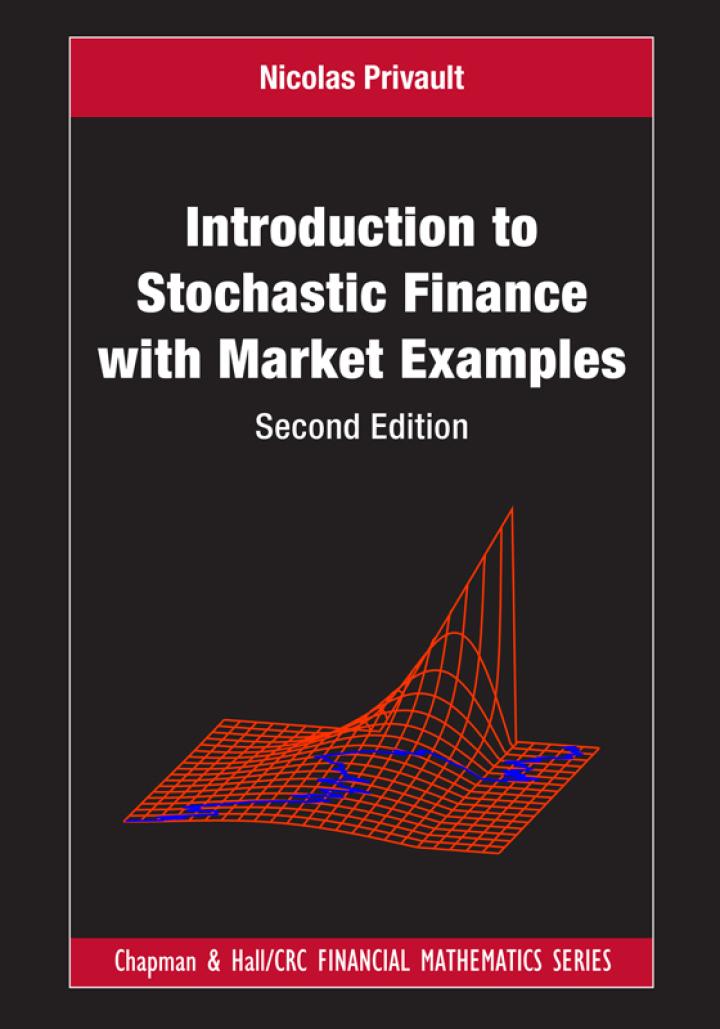Consider a discrete-time market model made of a riskless asset priced (A_{k}=) ((1+r)^{k}) and a risky asset
Question:
Consider a discrete-time market model made of a riskless asset priced \(A_{k}=\) \((1+r)^{k}\) and a risky asset with price \(S_{k}, k \geqslant 0\), such that the discounted asset price process \(\left((1+r)^{-k} S_{k}ight)_{k \geqslant 0}\) is a martingale under a risk-neutral probability measure \(\mathbb{P}^{*}\). Using Theorem 3.5, compute the arbitrage-free price \(\pi_{k}(C)\) at time \(k=0,1, \ldots, N\) of the claim \(C\) with maturity time \(N\) and affine payoff function
\[ C=h\left(S_{N}ight)=\alpha+\beta S_{N} \]
where \(\alpha, \beta \in \mathbb{R}\) are constants, in a discrete-time market with risk free rate \(r\).
Fantastic news! We've Found the answer you've been seeking!
Step by Step Answer:
Related Book For 

Introduction To Stochastic Finance With Market Examples
ISBN: 9781032288277
2nd Edition
Authors: Nicolas Privault
Question Posted:





